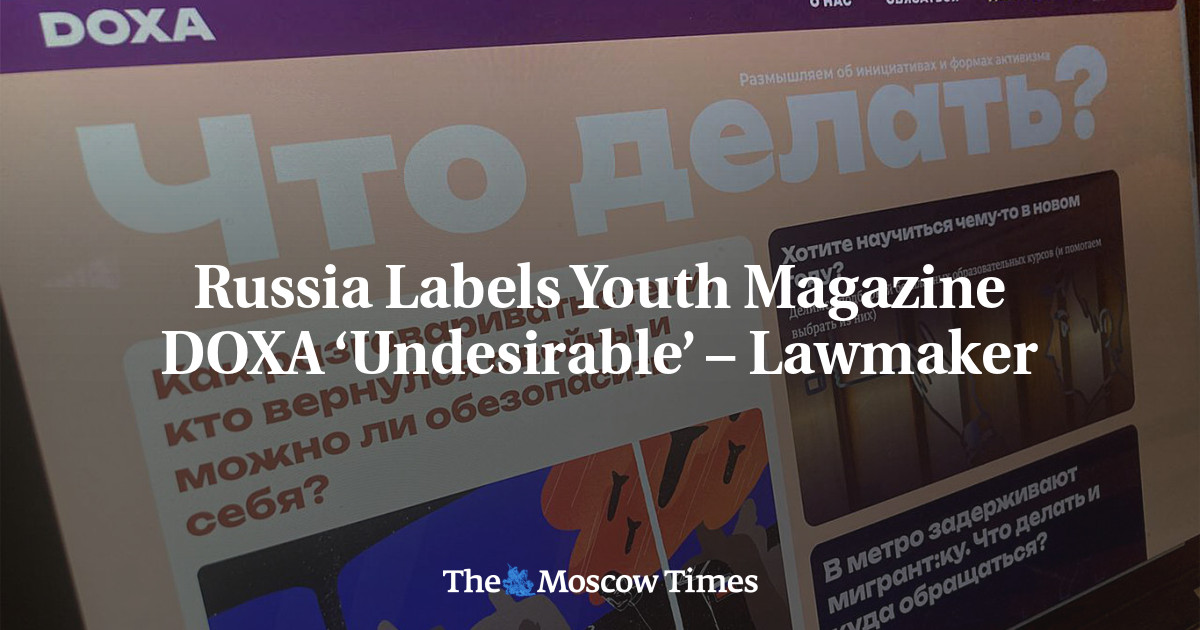
Russian authorities have designated the independent youth news outlet DOXA as “undesirable,” according to a senior member of Russia’s lower house of parliament said Thursday.
DOXA, which has openly criticized Russia’s invasion of Ukraine, said State Duma deputy Vasily Piskarev had asked the Russian Prosecutor General’s Office to blacklist the news outlet in November 2022.
“The General Prosecutor’s Office of Russia has approved our request,” Piskarev wrote Thursday on the Telegram channel of the lower-house State Duma’s commission on foreign state interference, which he chairs.
As of Thursday morning, DOXA had not yet been added to the database of “undesirable” organizations on the Russian Justice Ministry’s website. So, too, has the General Prosecutor’s Office not yet released an official statement on the designation.
Piskarev accused DOXA of “masquerading as a student publication” while being “openly hostile” toward Russian authorities.
He claimed DOXA was involved “in the training of subversive activities” by publishing instructions on how to commit arson at military buildings, calls for Russian soldiers to surrender to the Ukrainian forces, resisting arrest and taking over universities in Russia.
The “undesirable” designation bans DOXA’s work inside Russia, puts staff members at risk of jail time and criminalizes engagement with the outlet, including sharing its content online.
Piskarev warned that “cooperating and financing” DOXA carries a prison sentence of up to five years.
Organizations labeled “undesirable” must cease all operations inside Russia, and it is illegal for individuals and media outlets in Russia to republish or share their content.
Russia introduced its “undesirable” list in 2015 to crack down on foreign NGOs and ban Russians from working with or donating to them.
Authorities have since used the law on “undesirable” organizations to target independent news outlets, human rights groups, environmental organizations and educational institutions.
Russian officials have told The Moscow Times on condition of anonymity that the Kremlin is taking a harder line toward media outlets critical of its invasion ahead of the March presidential election.